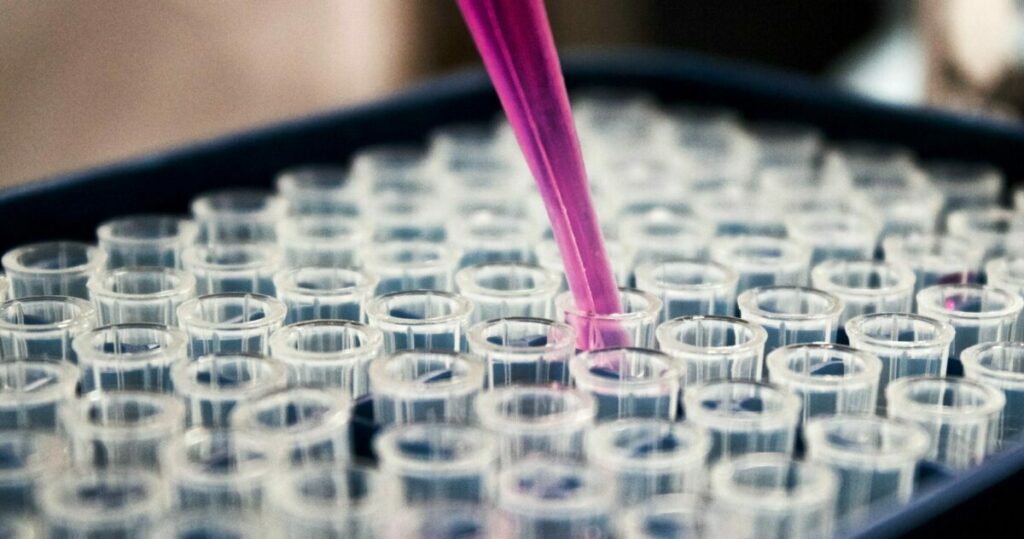by Scott Stiegemeyer
“Every day in every way, we’re getting better.” This mantra emerged in the first decades of the twentieth century, a hallmark of the optimistic mindset that prevailed in many circles of academia and government. New scientific discoveries and technological innovations seemed to promise a brighter future. However, two world wars, the Great Depression and the Holocaust shattered that positive view of humanity — at least for a time.
Now, with the advent of new biotechnologies, naïve optimism is re-emerging. Will the brave new world of genetic engineering be a utopia? As new technologies emerge, Christians need to be mindful of their implications, and the ideals that lurk behind them.
In 1859, Charles Darwin wrote On the Origin of Species, in which he described his theory of natural selection as the mechanism which drives biological evolution. Not long after that, people began to apply this principle to human society. According to “social Darwinism,” society has natural processes for eliminating its weaker members and promoting those who are more fit or better equipped to survive. This laid the foundation for the eugenics movement.
Nowadays, the word “eugenics” has a largely negative connotation: images of Nazi death camps spring immediately to mind. The word, meaning “good genes” or “good birth,” refers to all guided attempts to control and improve heredity. Many Americans are unaware that the United States has a history with eugenics as well. Popular supporters of eugenics in the Anglo-American world included Helen Keller, Winston Churchill, H.G. Wells and Alexander Graham Bell. The presidents of Harvard and Yale were on board. Funding came from Rockefeller, Carnegie and Kellog. In 1913, Theodore Roosevelt wrote in a letter:
“Society has no business to permit degenerates to reproduce their kind. It is really extraordinary that our people refuse to apply to human beings such elementary knowledge as every successful farmer is obliged to apply to his own stock breeding. Any group of farmers who permitted their best stock not to breed, and let all the increase come from the worst stock, would be treated as fit inmates for an asylum. Yet we fail to understand that such conduct is rational compared to the conduct of a nation which permits unlimited breeding from the worst stocks, physically and morally … We have no business to permit the perpetuation of citizens of the wrong type.”
There were over 60,000 forced sterilizations in the United States between 1905 and 1970. Prisoners, people in institutions and the poor were targeted. The U.S. Supreme Court even upheld the constitutionality of eugenic sterilization laws in 1927. Even though World War II and the Nuremberg trials cast a shadow upon the whole eugenics enterprise, compulsory sterilizations continued in the US up through the 1960s.
In today’s society, there is no support for forced sterilization or segregation. However, with the powerful new ability to edit the genes of organisms (a technology called CRISPR-CAS9) we can alter living things at their most basic level relatively easily and inexpensively. Changes that used to require generations of selective breeding can now be accomplished much more quickly and precisely. Many genetic therapies to cure disease are on the horizon. Observers are quick to point out, however, that if we can alter human genes to cure diseases, we can also do so for so-called enhancement purposes, creating “designer babies.”
Even if these genetic changes never become state-mandated, we should not overlook the social pressures that people will be under to modify their children if this practice ever becomes widespread. Keeping up with the Joneses will take on a whole new texture.
Christians are not anti-science, but they are opposed to using technology in ways that fight against God’s intent for human life. We know that fallen human nature will favor the strong over the weak, the rich over the poor. However, we choose not to evaluate our children according to their physical traits or abilities. Instead, we see their value as God’s children, created by Him, precious to Him and redeemed by Him.
Churches need to become educated about the relationship between science, technology and the historic faith, so that we can be witnesses for life and for Him who is the Way, the Truth and the Life.
The Rev. Professor Scott Stiegemeyer teaches bioethics and theology at Concordia University, Irvine, Calif.






